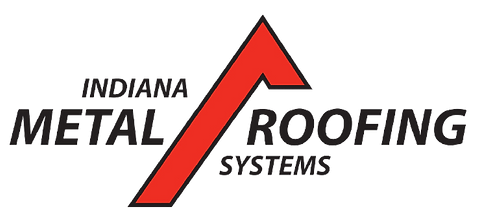Do Metal Roofs Get Noisy in the Rain
- Joseph Justice
- Feb 25
- 4 min read
Introduction: The Truth About Metal Roof Noise
One of the most common concerns homeowners have about metal roofing is whether it will be too noisy during rainstorms. The image of raindrops loudly echoing across a metal surface comes from older structures like barns and warehouses, where thin sheets of metal were attached directly to open framing. But does that still hold true for modern residential metal roofs?
At Indiana Metal Roofing Systems, based in Fort Wayne, IN, we specialize in high-quality metal roofing solutions that are designed for quiet, durable, and energy-efficient performance. With an A+ BBB rating and a 5-star Google rating, we ensure homeowners get the best roofing options without unnecessary concerns.
Let’s break down the science behind metal roofing and noise to see whether metal roofs are actually louder than other roofing materials.

Where Does the "Noisy Metal Roof" Myth Come From?
The idea that metal roofs are noisy comes from older applications, particularly agricultural buildings like barns, sheds, and warehouses. These buildings often used thin metal panels directly attached to open rafters with no insulation or decking underneath.
Since there was no barrier to absorb sound, raindrops and hailstones would create a loud, echoing effect, reinforcing the perception that metal roofs are inherently noisy. However, modern metal roofing systems are engineered differently, making them just as quiet as traditional asphalt shingles.
How Modern Metal Roofs Reduce Noise
Unlike barn-style metal roofs, residential metal roofs are installed with multiple layers of insulation and sound-dampening materials. These features significantly reduce the noise from rain and hail.
1. Roof Decking Absorbs Sound
Most modern homes have a solid roof deck made from plywood or oriented strand board (OSB). This layer acts as a sound barrier, preventing the vibrations from rain from being amplified inside the home.
2. Underlayment for Extra Insulation
Beneath the metal panels, an underlayment layer is installed, often made from:
Felt or synthetic membranes
Foam or rubberized coatings
Specialized soundproofing materials
This underlayment absorbs vibrations and significantly reduces noise levels, making a metal roof as quiet as or even quieter than an asphalt shingle roof.
3. Proper Fastening and Panel Design
Two main types of metal roofing systems—standing seam and exposed fastener panels—differ in their ability to reduce noise:
Standing seam metal roofs (with concealed fasteners) create a tighter, more secure barrier against noise.
Exposed fastener roofs (like corrugated panels) may allow for slightly more vibration, but proper installation minimizes this issue.
4. Attic Insulation Provides Extra Noise Reduction
A properly insulated attic plays a major role in soundproofing. Thick fiberglass or spray foam insulation helps absorb external noise, preventing it from traveling into the living spaces.
With these features combined, a well-installed metal roof produces the same or even less noise than a traditional asphalt roof.
Comparing Metal Roof Noise to Asphalt Shingles
Some homeowners assume that asphalt shingles are quieter than metal roofs, but the difference is minimal when installed correctly.
Feature | Metal Roof | Asphalt Shingles |
Noise Control | With proper installation, as quiet as asphalt shingles | Naturally absorbs some sound but still allows noise to pass through |
Roof Decking | Solid plywood or OSB reduces vibration | Same as metal roofing |
Underlayment | Advanced synthetic and sound-dampening layers | Standard felt or synthetic underlayment |
Attic Insulation | Helps further reduce noise | Same as metal roofing |
The key takeaway? A properly installed metal roof is not louder than an asphalt shingle roof—and in some cases, it may even be quieter due to superior insulation and underlayment.
Other Benefits of Metal Roofs Beyond Noise Reduction
Aside from being just as quiet as shingles, metal roofs offer several advantages that make them a better long-term investment.
1. Durability and Longevity
While asphalt shingles last around 20-30 years, a metal roof can last 50+ years with minimal maintenance.
2. Energy Efficiency
Metal roofing reflects solar heat, reducing cooling costs by up to 25% in the summer. Asphalt shingles absorb heat, making homes warmer and increasing energy bills.
3. Low Maintenance
Metal roofs resist moss, algae, and moisture damage, unlike shingles, which can develop leaks and require frequent repairs.
4. Weather Resistance
A properly installed standing seam metal roof can withstand winds up to 140-160 mph, making it an excellent choice for storm-prone areas.
FAQs About Metal Roof Noise
1. Are metal roofs noisier than shingle roofs?
No! A modern metal roof, when installed over solid decking and underlayment, is just as quiet as an asphalt shingle roof.
2. Can adding more insulation make a metal roof even quieter?
Yes! If you're concerned about noise, adding extra attic insulation or specialized soundproofing underlayment can further minimize sound levels.
3. Will a metal roof be noisy during hailstorms?
A properly installed metal roof will dampen hail impact just like an asphalt roof. Higher-end coatings and materials further reduce sound transmission.
Final Verdict: Are Metal Roofs Noisy?
The belief that metal roofs are noisy in the rain is an outdated misconception based on old barn-style roofing. In reality, modern metal roofing systems are engineered to be just as quiet as asphalt shingles.
With proper decking, insulation, and underlayment, homeowners won’t hear a noticeable difference between a metal and shingle roof when it rains. If you’re considering a stronger, longer-lasting, and energy-efficient roofing option, a metal roof is the superior choice.
At Indiana Metal Roofing Systems, we provide expert installation and premium materials to ensure your home is protected, quiet, and energy-efficient for decades.
To learn more about the most durable finish for a metal roof, visit What’s the Most Durable Finish for a Metal Roof and discover how the right finish can enhance your roof’s longevity and performance.


Comments